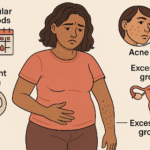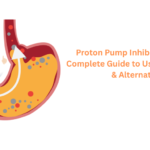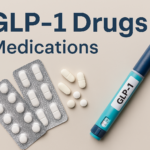
Table of Contents
Introduction to Male Infertility
Definition of Male Infertility
Male infertility is a complex reproductive health challenge characterised by a man’s inability to cause pregnancy after one year of unprotected, regular sexual intercourse. It’s not just about the absence of conception, but a nuanced interplay of biological, environmental, and lifestyle factors that impact male reproductive capabilities.
Unlike popular misconceptions, infertility isn’t solely a female concern. In fact, male factors contribute to approximately 40-50% of all fertility challenges, making it a critical area of medical research and intervention. The World Health Organization defines male infertility through specific semen parameters, including sperm concentration, motility, and morphology.
The Prevalence of Infertility in Men
Infertility affects a significant number of men worldwide. Recent statistics show that approximately 15% of couples face infertility, and 40-50% of these cases involve male factors. This stark reality highlights the need for awareness and open discussion about male fertility issues.
Recent epidemiological studies suggest that male infertility affects roughly 7% of men worldwide, with variations across different geographical and demographic groups. The prevalence has been incrementally rising, attributed to multiple interconnected factors such as:
- Increasing environmental toxin exposure
- Lifestyle-related health complications
- Delayed parenthood trends
- Escalating chronic health conditions
The multifaceted nature of male infertility means that no single factor can be exclusively blamed. Instead, it’s a complex interplay of genetic predispositions, environmental influences, and individual .
Dispelling the Myths Surrounding Male Infertility
Many misconceptions surround male infertility. Common myths include the idea that only women are responsible for infertility, or that age does not affect male fertility as significantly. Understanding these myths is essential, as it encourages open communication and emphasizes the importance of seeking help.
Common Causes of Male Infertility
Semen Issues: Volume, Count, and Motility
Semen analysis is vital for diagnosing infertility. Normal semen parameters include:
- Volume: 1.5 – 5 mL
- Count: 15 million sperm per mL or more
- Motility: 40% or more of sperm should be moving
Issues with low sperm count, motility, or abnormal sperm shape may arise from multiple factors, including lifestyle choices and genetic conditions.
Hormonal Imbalances and Their Impact
Hormones play a crucial role in male fertility. Testosterone, along with other hormones, is essential for sperm production. Disorders such as hypogonadism or pituitary gland issues can lead to hormonal disruptions that negatively affect fertility.
Causes of Male Infertility
Genetic Factors
Genetic predispositions play a significant role in male fertility potential. Chromosomal abnormalities, gene mutations, and inherited conditions can directly impact reproductive capabilities. Conditions like Klinefelter syndrome, Y-chromosome microdeletions, and cystic fibrosis transmembrane conductance regulator (CFTR) gene mutations can substantially influence fertility outcomes.
Contemporary genetic screening technologies enable early identification of potential reproductive risks, empowering individuals and couples with proactive healthcare strategies.
Environmental Factors
Environmental exposures increasingly emerge as critical determinants of male reproductive health. Industrial chemicals, pesticides, heavy metals, and radiation can significantly compromise sperm quality and quantity.
Key environmental fertility disruptors include:
- Endocrine-disrupting chemicals
- Occupational hazards
- Electromagnetic radiation
- Climate change-related environmental transformations
Lifestyle Factors
Modern lifestyle patterns substantially influence male fertility. Factors like:
- Chronic stress
- Sedentary behaviour
- Poor nutritional choices
- Substance abuse
- Irregular sleep patterns
Can collectively and individually undermine reproductive potential. Holistic lifestyle modifications represent a powerful, proactive approach to maintaining and enhancing male fertility.
Medical Conditions
Various medical conditions can directly or indirectly impact male fertility:
- Diabetes
- Cardiovascular diseases
- Autoimmune disorders
- Metabolic syndrome
- Chronic inflammatory conditions
Each condition presents unique reproductive challenges, necessitating personalised medical approaches.
Drugs that Cause Male Infertility
Overview of Antispermatogenic Drugs
Certain medications can significantly disrupt male reproductive function, acting as potential barriers to fertility. Antispermatogenic drugs are pharmaceutical compounds that directly or indirectly impair sperm production, quality, or functionality.
These medications span various therapeutic categories, including:
- Chemotherapy drugs
- Certain antihypertensive medications
- Psychiatric pharmaceuticals
- Hormonal treatments
Each category presents unique mechanisms of reproductive system interference, demonstrating the intricate relationship between systemic health treatments and fertility potential.
Anti-Androgenic Medications and Their Effects on Fertility
Anti-androgenic medications, primarily used to manage conditions like prostate cancer, hormonal imbalances, and specific dermatological issues, can substantially impact male reproductive capabilities. By suppressing testosterone production or blocking androgen receptors, these drugs can:
- Reduce sperm production
- Alter sperm motility
- Decrease overall reproductive hormone levels
- Potentially induce temporary or permanent fertility challenges
Common examples include:
- Finasteride (used for hair loss)
- Spironolactone (treating hypertension)
- GnRH antagonists (managing prostate conditions)
Healthcare professionals must carefully balance treatment objectives with potential reproductive consequences, often recommending fertility preservation strategies for patients requiring long-term anti-androgenic interventions.
Hormonal Imbalance Treatment and Its Impact on Male Fertility
Hormonal treatments designed to address endocrine disorders can inadvertently influence male fertility. Testosterone replacement therapy, thyroid medications, and treatments for conditions like hypogonadism can create complex reproductive challenges.
The delicate hormonal equilibrium means that even well-intentioned medical interventions can disrupt spermatogenesis. Patients considering or undergoing such treatments should engage in comprehensive discussions with endocrinologists and fertility specialists to understand potential reproductive implications.
Lifestyle Factors Affecting Male Fertility
The Impact of Diet and Nutrition
Nutrition significantly influences sperm health. Key nutrients include:
- Zinc: Found in meat, beans, and nuts
- Folic Acid: Present in leafy greens and citrus fruits
- Omega-3 Fatty Acids: Found in fish and flaxseeds
Eating a balanced diet rich in these nutrients can promote better sperm health and improve fertility.
Effects of Stress, Smoking, and Alcohol Consumption
Stress can severely impact fertility in men. Scientific studies show that high-stress levels can lead to hormonal imbalances. Smoking and excessive alcohol consumption also have documented negative effects on sperm quality, reducing the chances of conception.
Diagnosing Male Infertility: Tests and Procedures
Semen Analysis
Comprehensive semen analysis remains the cornerstone of male fertility assessment, evaluating critical parameters like:
- Sperm concentration
- Motility
- Morphology
- Volume
- pH levels
Testicular Biopsy
Invasive yet informative, testicular biopsies provide detailed insights into sperm production capabilities and potential underlying reproductive challenges.
Hormone Testing
Hormonal profiling helps understand the complex endocrine interactions influencing fertility:
- Testosterone levels
- Follicle-stimulating hormone (FSH)
- Luteinizing hormone (LH)
- Prolactin
Fertility Testing Kits
Emerging home-based fertility testing technologies offer accessible preliminary screening options, empowering individuals with initial reproductive health insights.
Treatment Options for Male Infertility
Infertility Medications
Key medication categories include:
- Hormone replacement therapies
- Antioxidant supplements
- Gonadotropin treatments
- Surgical pharmaceutical support
Lifestyle Modifications and Natural Approaches
Making positive lifestyle changes can improve fertility. Some actionable steps include:
- Eating a healthy diet
- Maintaining a healthy weight
- Reducing alcohol and quitting smoking
- Managing stress through routines like yoga or meditation
Natural supplements, like vitamins or herbal products, might also help, although it’s best to discuss these with a healthcare provider.
Medical Interventions: Medications and Assisted Reproductive Technologies (ART)
In certain cases, medical treatments may be necessary. Different medications can correct hormonal imbalances or address infections. Advanced techniques, such as in vitro fertilization (IVF) or intracytoplasmic sperm injection (ICSI), offer additional options for couples facing infertility challenges.
Assisted Reproductive Technologies (ART)
Modern reproductive medicine has revolutionised fertility treatment through advanced assisted reproductive technologies:
- Intracytoplasmic sperm injection (ICSI)
- In-vitro fertilisation (IVF)
- Testicular sperm extraction (TESE)
- Microsurgical epididymal sperm aspiration (MESA)
Surgical Treatments
Surgical interventions can address structural or functional reproductive system challenges:
- Varicocele repair
- Vasectomy reversal
- Obstruction corrections
- Reproductive tissue reconstructions
Natural Fertility Remedies
Complementary approaches supporting male reproductive health include:
- Nutritional interventions
- Stress management techniques
- Exercise protocols
- Herbal supplementation
- Lifestyle optimization strategies
Conclusion: Hope and Support for Infertile Men
Key Takeaways: Understanding and Addressing Male Infertility
Recognizing the main causes, available diagnostic methods, and treatment options for male infertility is essential. Seeking professional guidance is crucial for navigating this subject and finding possible solutions.
Resources and Support Networks
Men experiencing infertility can find support through reputable organizations such as:
- American Urological Association
- Resolve: The National Infertility Association
- Men’s Health Network
Research articles and studies provide additional insights into the complexities of male infertility, helping to foster understanding and support for those affected.
FAQ: Male Infertility Insights
How long should couples try before seeking fertility advice?
Generally, consult a specialist after 12 months of unsuccessful conception attempts.
Can lifestyle changes improve male fertility?
Absolutely. Diet, exercise, stress management, and avoiding harmful environmental exposures can significantly enhance reproductive potential.
Are fertility challenges permanent?
Not necessarily. Many conditions are treatable or manageable with appropriate medical interventions and lifestyle modifications.











3 thoughts on “Understanding Male Infertility: Causes, Diagnosis, and Treatment Options”